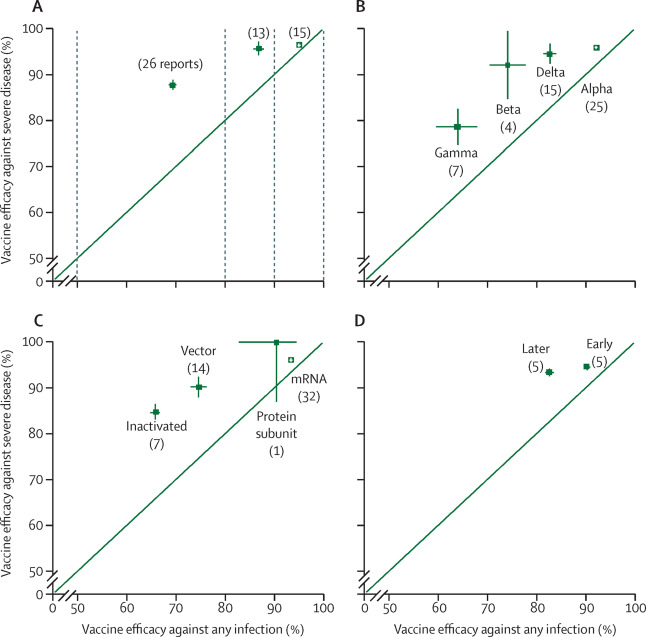That's just not true.
Although the benefits of primary COVID-19 vaccination clearly outweigh the risks, there could be risks if boosters are widely introduced too soon, or too frequently, especially with vaccines that can have immune-mediated side-effects (such as myocarditis, which is more common after the second dose of some mRNA vaccines,3 or Guillain-Barre syndrome, which has been associated with adenovirus-vectored COVID-19 vaccines4). If unnecessary boosting causes significant adverse reactions, there could be implications for vaccine acceptance that go beyond COVID-19 vaccines. Thus, widespread boosting should be undertaken only if there is clear evidence that it is appropriate
A new wave of COVID-19 cases caused by the highly transmissible delta variant is exacerbating the worldwide public health crisis, and has led to consideration of the potential need for, and optimal timing of, booster doses for vaccinated populations.1 Although the idea of further reducing the...
www.thelancet.com
Remember, these were the top two vaccine regulators at the FDA at the time. They warned of introducing boosters "too soon or too frequently", and how that would spill over to uptake of other vaccines. But the Biden administration ignored their warnings so they could push full speed ahead with their unscientific and evidence-poor vaccine mandates. Gruber and Krause resigned in protest over the Biden administration's rushing of boosters for all, which was not, and has
NEVER, been supported by "the science itself".
At the time, the Biden administration was, as you say, "cooking the books". And the regulators stood against it and resigned in protest.
Because we all know that will stop the surge.

Or maybe, as a Cleveland Clinic study found, boosting people
might make them
more susceptible to infection.
We still have a lot to learn about protection from COVID-19 vaccination, and in addition to vaccine effectiveness, it is important to examine whether multiple vaccine doses given over time may not be having the beneficial effect that is generally assumed.
Among 51 017 working-aged Cleveland Clinic employees, the bivalent coronavirus disease 2019 vaccine was 29% and 20% effective in preventing infection while the

academic.oup.com
It really is a shame the damage that COVID vaccine zealotry has done to vaccines in general. Of course, I said this on this very form way back in May 2021 in this post:
That was long before anyone thought RFK Jr could end up as the head of HHS. I saw this coming a mile away. So did Gruber and Krause when the Biden administration decided they needed to boost and boost and boost some more without any evidence that it was necessary.
The collapse of trust was all but assured with such evidence-poor mandates. How many times did I post the "Lessons from History" out of the ACLU's pandemic preparedness plans. The warnings were there, but ignored:
Lessons from History
American history contains vivid reminders that grafting the values of law enforcement and national security onto public health is both ineffective and dangerous. Too often, fears aroused by disease and epidemics have justified abuses of state power. Highly discriminatory and forcible vaccination and quarantine measures adopted in response to outbreaks of the plague and smallpox over the past century have consistently accelerated rather than slowed the spread of disease, while fomenting public distrust and, in some cases, riots.
The lessons from history should be kept in mind whenever we are told by government officials that “tough,” liberty-limiting actions are needed to protect us from dangerous diseases. Specifically:
Coercion and brute force are rarely necessary. In fact they are generally counterproductive—they gratuitously breed public distrust and encourage the people who are most in need of care to evade public health authorities.
On the other hand, effective, preventive strategies that rely on voluntary participation do work. Simply put, people do not want to contract smallpox, influenza or other dangerous diseases. They want positive government help in avoiding and treating disease. As long as public officials are working to help people rather than to punish them, people are likely to engage willingly in any and all efforts to keep their families and communities healthy.
Minorities and other socially disadvantaged populations tend to bear the brunt of tough public health measures.
RFK Jr might be a convenient scapegoat in this moment, but the bottom line is that public health willingly did this to itself.



